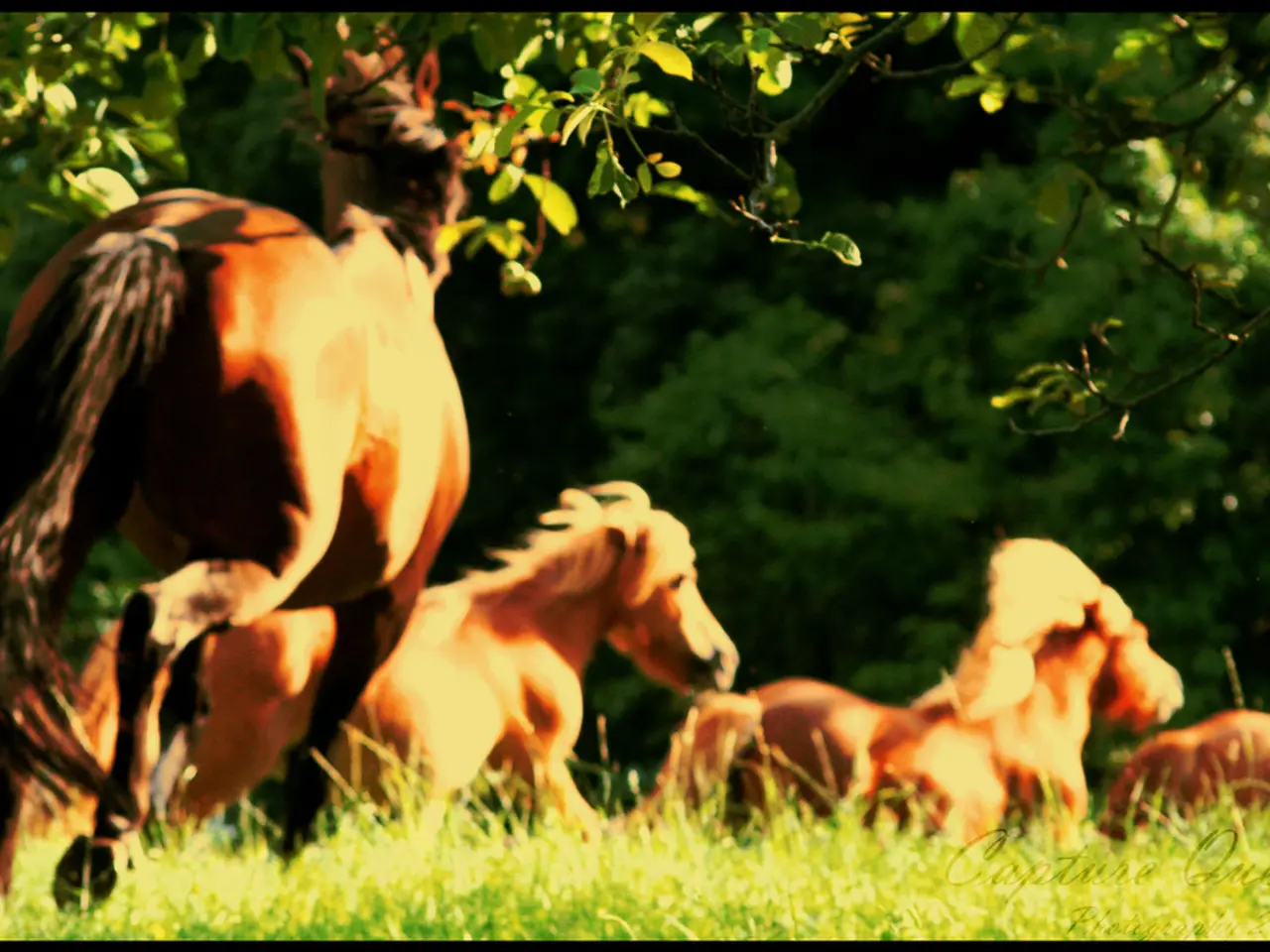AI and Predictive Analytics Shaping Horse Breeding's Tomorrow
In the dynamic world of equine breeding, traditional practices are being transformed by the integration of artificial intelligence (AI) and predictive analytics. These innovative tools are enabling breeders to make more informed decisions, leading to improved breeding outcomes and enhanced athletic potential.
The challenges faced by breeders are numerous, including maintaining equine health amid evolving breeding trends, rising costs, and the overwhelming amount of data available. However, AI and machine learning are proving to be valuable assets in overcoming these hurdles.
By analysing genetic data and phenotypic traits, AI can predict performance and market value, helping breeders select horses with optimal traits such as balance, elasticity, and scope. This data-driven approach is replacing much of the traditional intuition-based selection, leading to more precise breeding decisions.
AI also facilitates the management of breeding programs through genomic selection tools. These technologies improve accuracy in identifying superior genetics and increase reproductive efficiency via methods like artificial insemination, sexed semen, and embryo transfer.
Moreover, predictive analytics in combination with wearable sensors and diagnostic AI systems are enabling early detection of lameness and health issues, further optimizing the training and care of horses from a genetic and performance perspective.
The landscape of equine breeding is rapidly changing, with an emphasis on health, longevity, and data-driven decisions. Machine learning techniques help breeders make more informed decisions about which horses to mate, leading to tailored breeding programs.
As more data becomes available, breeders can optimize their choices, potentially leading to improved equine health and performance. Genetics significantly influences breeding outcomes, and genetic selection is becoming more crucial as breeders aim for specific traits.
Predictive analytics is a method that uses data to forecast future events, combining statistics, data mining, and machine learning to analyse trends. This powerful tool can provide vital insights into equine health patterns, allowing breeders to foresee potential health issues and make better breeding choices.
Ethical considerations will shape breeding practices, ensuring the welfare of horses is prioritized. AI and machine learning can aid in identifying potential health issues, leading to healthier horses overall.
The integration of AI into genetic selection can revolutionize the breeding process by providing more accurate performance predictions and identifying breeding trends. Big data has the power to transform horse sports, revealing connections between genetic factors and performance outcomes.
In conclusion, the combination of AI and predictive analytics is driving a more efficient, transparent, and scientifically objective horse breeding industry. Improved expectations for race outcomes and breeding value assessments are backed by large genomic and phenotypic datasets. The role of breeders and stable staff is shifting from manual labor towards data analysis and strategic, science-backed management. These advances are set to redefine the future of horse breeding, making it a more precise, data-driven, and ethical process.
Read also:
- Court petitions to reverse established decision on same-sex marriage legalization
- Commemoration of 200 Days of American Resurgence Unveiled
- Minister Bärbel Bas expresses doubts about her tenure as a minister following a recent interview during the summer.
- Politicians from both Republican and Democratic parties are urging President Trump to maintain the security agreement with Australia and the United Kingdom.






